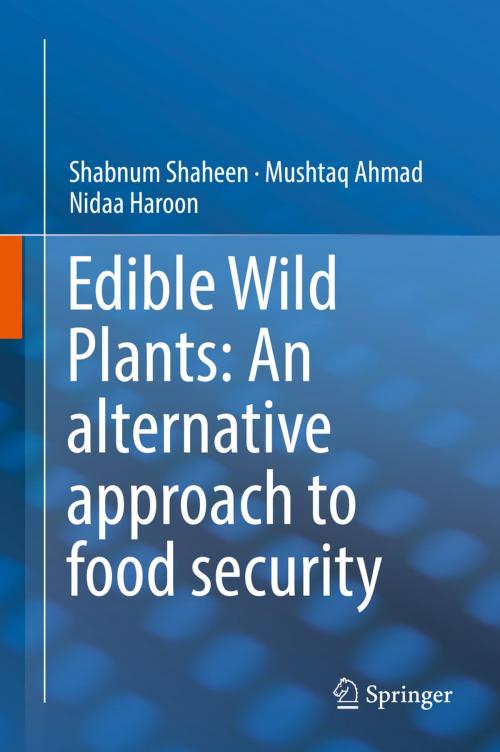Edible Wild Plants: An alternative approach to food security
Nonfiction, Science & Nature, Technology, Food Industry & Science, Science, Biological Sciences, Botany| Author: | Shabnum Shaheen, Mushtaq Ahmad, Nidaa Haroon | ISBN: | 9783319630373 |
| Publisher: | Springer International Publishing | Publication: | August 31, 2017 |
| Imprint: | Springer | Language: | English |
| Author: | Shabnum Shaheen, Mushtaq Ahmad, Nidaa Haroon |
| ISBN: | 9783319630373 |
| Publisher: | Springer International Publishing |
| Publication: | August 31, 2017 |
| Imprint: | Springer |
| Language: | English |
This text focuses on underutilized wild plants that can help to reduce food deficiency in developing nations. Edible wild plants are viewed as a potential solution for overcoming food insecurity for families in these regions, with a specific focus on sustainable production and conservation measures. Detailed analysis of specific wild plants is provided, including the nutritional contents of each plant. A full list of edible wild plants is included for the benefit of researchers, plus a pictorial guide for easy identification of these plants. Specific case studies are provided in which edible wild plants are used to reduce food insecurity, and the diversity of edible wild plants is studied from a global perspective.
In developing countries, a significant obstacle to human survival is the increasing gap between food availability and the growing human population. Food insecurity results in less consumption of fruits and vegetables and leads to mineral and vitamin deficiency for individuals in these regions. Edible Wild plants: An alternative approach to food security focuses on growing and using wild plants in order to reduce food insecurity and malnutrition. Wild edible plants are inexpensive and are a rich source of antioxidants, vitamins, fiber, and minerals. As the first book to specifically focus on edible wild plants and their vital role in food security and nutrition, this text is incredibly valuable to any researcher studying innovative potential solutions to food deficiency in the developing world.
This text focuses on underutilized wild plants that can help to reduce food deficiency in developing nations. Edible wild plants are viewed as a potential solution for overcoming food insecurity for families in these regions, with a specific focus on sustainable production and conservation measures. Detailed analysis of specific wild plants is provided, including the nutritional contents of each plant. A full list of edible wild plants is included for the benefit of researchers, plus a pictorial guide for easy identification of these plants. Specific case studies are provided in which edible wild plants are used to reduce food insecurity, and the diversity of edible wild plants is studied from a global perspective.
In developing countries, a significant obstacle to human survival is the increasing gap between food availability and the growing human population. Food insecurity results in less consumption of fruits and vegetables and leads to mineral and vitamin deficiency for individuals in these regions. Edible Wild plants: An alternative approach to food security focuses on growing and using wild plants in order to reduce food insecurity and malnutrition. Wild edible plants are inexpensive and are a rich source of antioxidants, vitamins, fiber, and minerals. As the first book to specifically focus on edible wild plants and their vital role in food security and nutrition, this text is incredibly valuable to any researcher studying innovative potential solutions to food deficiency in the developing world.















